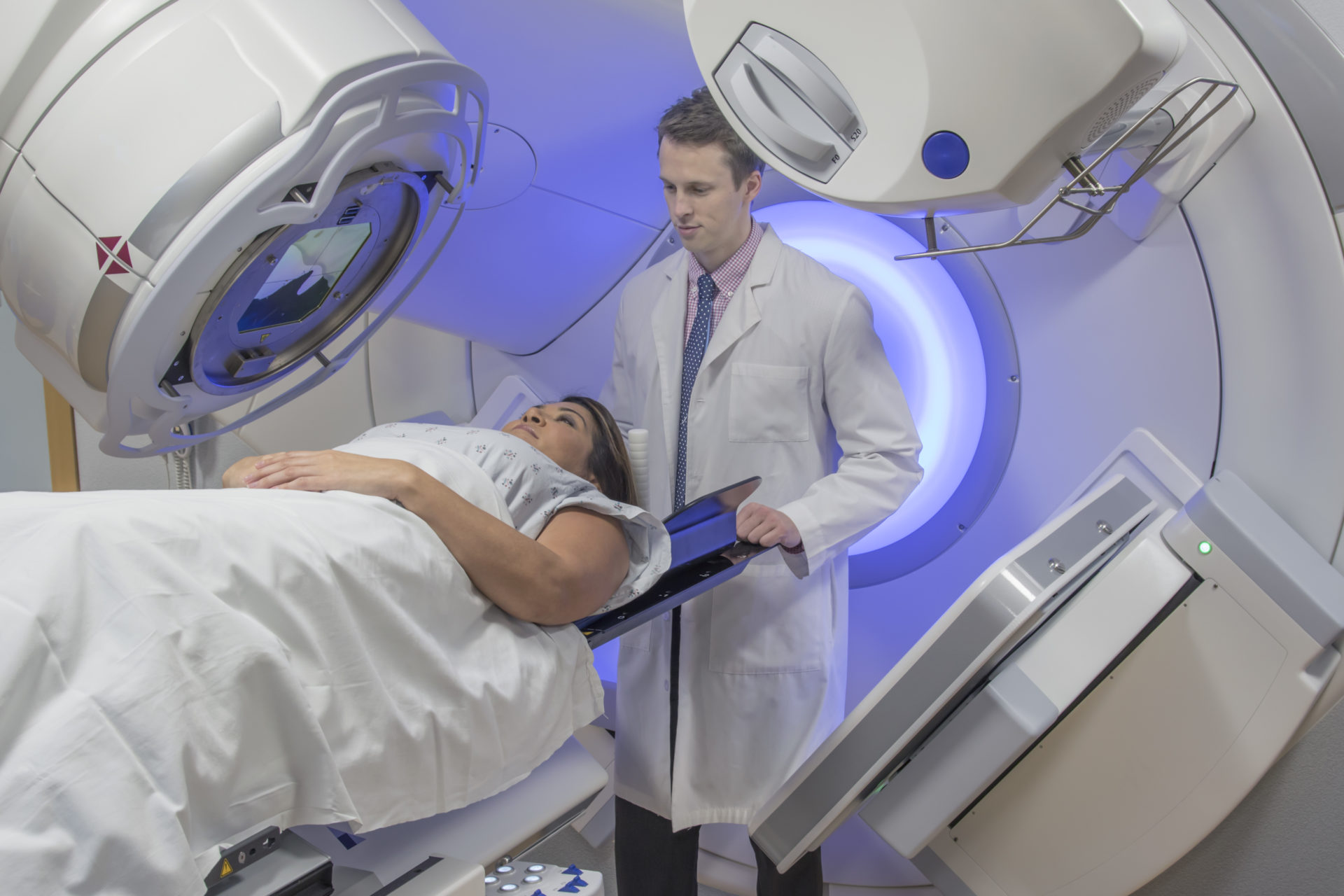

Introducing SABR treatment for pancreatic cancer
This month, we're thrilled to share with you an exciting development in the treatment of pancreatic cancer
In Autumn 2020, Pancreatic Cancer UK helped to submit a proposal to NHS England, asking them to commission a type of radiotherapy called SABR (Stereotactic Ablative Body Radiotherapy), for people with locally advanced pancreatic cancer (LAPC).
Locally advanced cancer is when the cancer has not spread to other parts of the body, except organs surrounding the pancreas like large blood vessels and lymph nodes. About 30-40% of patients have a locally advanced pancreatic cancer, which is not treatable with surgery. The main treatment for LAPC is chemotherapy, sometimes in combination with radiotherapy (chemoradiotherapy).
SABR treatment
Now, SABR treatment has been commissioned for rollout in England, thanks to a group of healthcare professionals and Pancreatic Cancer UK’s Research Involvement Network (RIN) – a group of people who each have a personal connection to pancreatic cancer. Our RIN members helped to shape the proposal by getting involved with focus groups and surveys, providing a unique perspective on how they would like to see this type of radiotherapy rolled out.
We chatted to Katharine Aitken, a Consultant Clinical Oncologist based at The Royal Marsden, who was involved in putting together the proposal for SABR, about how it came about and what it means for the future.
SABR treatment is a type of radiotherapy that has been used for decades, but has only recently been explored as a treatment for pancreatic cancer. It delivers the radiation very precisely and from multiple angles. This approach means that the cancerous cells receive a much higher dose and surrounding healthy cells are spared. As this is a more efficient radiotherapy, people have fewer visits to the hospital and get fewer side effects.
Research has shown that SABR treatment is as good as if not better at destroying cancers compared to conventional radiotherapy. Some of the benefits of its use as an alternative treatment option to chemoradiotherapy, in addition to fewer visits to the hospital, include:
- No requirement for daily oral chemotherapy alongside SABR, meaning less risk of side effects
- Fewer blood tests
- Reduction of pain
Because of the proposal made by healthcare professionals with the support of Pancreatic Cancer UK, it will now be made available to patients in England with locally advanced pancreatic cancer. This is really exciting progress in treatment for people with pancreatic cancer in England, but it’s really important that SABR is made available across the UK. There needs to be both nationwide implementation and consistency of access and delivery across the UK, including within England itself, which is something those involved in the rollout are working towards.
Hopefully this will be a springboard to bigger and better developments in radiation delivery for pancreatic cancer

